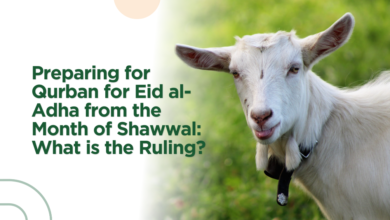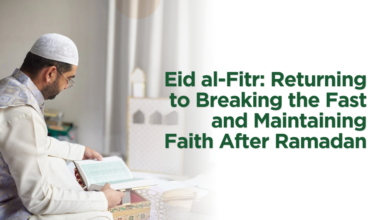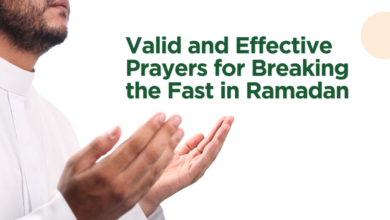Muslim Lifestyle
-

Fiqh of Zakat Profession and Calculation Procedure
Professional zakat is intended for professionals or workers who have income that has reached the nisab. Nisab itself is the lowest limit that has been determined by sharia which is used as a guideline in determining the obligation to pay zakat on income. For workers who get a monthly salary every month and especially if we are a Muslim, it…
Read More » -

Preparing Qurban for Eid al-Adha from the Month of Shawwal: What is the Ruling?
Muslims perform the act of Qurban (sacrifice) as a sign of obedience and thanksgiving to Allah ﷻ on Eid al-Adha one of the most important occasions in the Islamic calendar. According to several hadiths and Islamic teachings qurban is a highly recommended act of worship (sunnah muakkadah) for those who can afford it. What is the ruling on fattening the…
Read More » -

Achieving Lailatul Qadr Without I’tikaf: Possible?
Who doesn’t want to receive its blessings on the Night of Lailatul Qadr? Just imagine, this one night of worship is better than a thousand months! But, what if we can’t do i’tikaf in the mosque? Can we still achieve the virtues of the Night of Lailatul Qadr? Let’s discuss it thoroughly! Laylatul Qadar Night: A Night Full of Mystery…
Read More » -

Sharing in Ramadan: Rewards Beyond Imagination!
Who doesn’t want to get a big reward in the month of Ramadan? This blessed month is a golden moment for all of us to share as much as possible. Starting from charity, giving food to break the fast, to helping others who are in trouble. In short, this is the right time to increase our acts of worship! Why…
Read More » -

Eid al-Fitr: Returning to Breaking the Fast and Maintaining Faith After Ramadan
Muslims around the world joyfully celebrate Eid al-Fitr one of the most important Islamic holidays. Nevertheless it is important to comprehend the actual significance of Eid al-Fitr and how we ought to behave once the celebration is over. Eid al-Fitr contrary to popular belief literally means returning to breaking the fast following a month-long fast not returning to purity. Additionally…
Read More » -

Syawal Fasting: A Small Investment, Big Rewards!
Imagine if there was a small investment that could give big profits. Surely we wouldn’t miss it, right? Well, in worship there is also such an ‘investment’. Just by fasting six days in the month of Syawal , we can get a reward like fasting for a whole year! This is not just empty motivation, but a promise from the…
Read More » -

Patience and Gratitude: Two Intertwined Principles
Humans are constantly subject to two conditions in life: happiness and adversity. Islam teaches two key concepts to deal with these circumstances: gratitude (syukur) and patience (sabar). They are complementary and inseparable like two sides of a single coin. True happiness and inner peace for a Muslim are based on the practical principles of patience and gratitude which are not…
Read More » -

Patience and Giving up: Two Different Concepts Often Misunderstood
The words patience and giving up are frequently used in everyday speech. They have different implications and meanings though. While giving up is sometimes understood as accepting fate without effort patience is a positive attitude that promotes tenacity and effort in the face of adversity. Sadly a lot of people confuse the two which causes misapplication. This article will go…
Read More » -

Zakat on Crypto: How to Calculate It?
Cryptoassets like Bitcoin, Ethereum and Solana have become a common component of many peoples investment portfolios in this quickly evolving digital age. But in addition to managing our money sensibly Muslims must also make sure that it is purified through zakat in compliance with Islamic law. Lets talk more about this. What is the crypto zakat ruling and how do…
Read More » -

Valid and Effective Prayers for Breaking the Fast in Ramadan
Have you ever been waiting for the Maghrib call to prayer, ready with a glass of water and dates, but forgot to recite the prayer for breaking the fast? Well, so that the moment of breaking the fast is even more blessed, let’s discuss together the valid prayers for breaking the fast in Ramadan, complete with evidence and its virtues.…
Read More »

